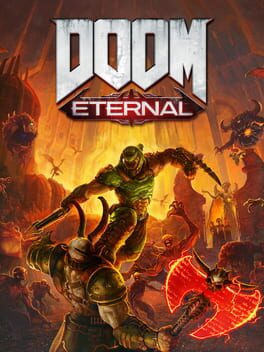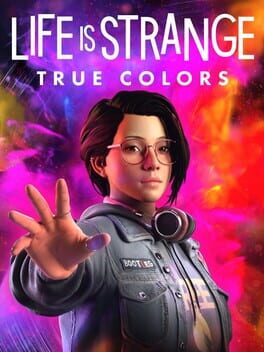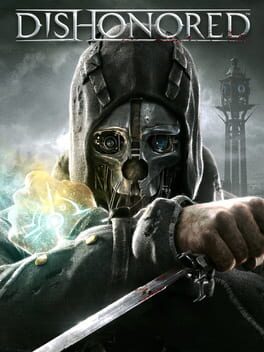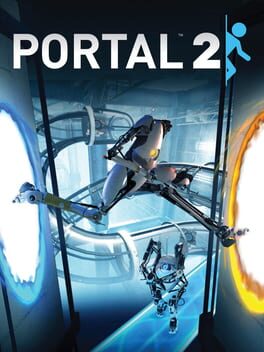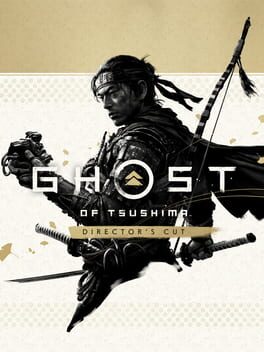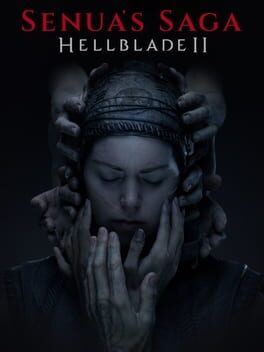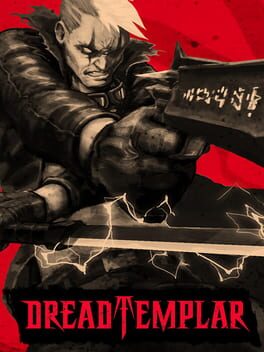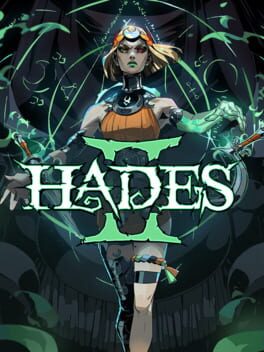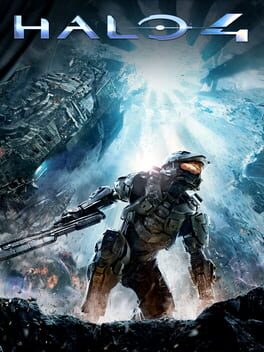ShawnRazor
BACKER
Bio
24 | A gamer that does excessive amounts of gaming. Also I write about games sometimes.
Pfp from Blue Eye Samurai.
24 | A gamer that does excessive amounts of gaming. Also I write about games sometimes.
Pfp from Blue Eye Samurai.
Badges

Donor
Liked 50+ reviews / lists

Popular
Gained 15+ followers

Loved
Gained 100+ total review likes

Elite Gamer
Played 500+ games

Gone Gold
Received 5+ likes on a review while featured on the front page

Best Friends
Become mutual friends with at least 3 others

GOTY '23
Participated in the 2023 Game of the Year Event

Liked
Gained 10+ total review likes

2 Years of Service
Being part of the Backloggd community for 2 years

Noticed
Gained 3+ followers

GOTY '22
Participated in the 2022 Game of the Year Event

Roadtrip
Voted for at least 3 features on the roadmap

Gamer
Played 250+ games

N00b
Played 100+ games
Favorite Games
521
Total Games Played
043
Played in 2024
252
Games Backloggd
Recently Played See More
Recently Reviewed See More
Ghost of Tsushima takes the cake as the review I've thought the most about recently regarding score. Some parts of me wanted to drop this score to a 9 since there are a couple minor things like technical issues that did annoy me. However, the fact this game has completely changed my thoughts on open-world games in general solidifies it as a modern masterpiece for me. One that shows that, despite all that's been said about some of the minor annoyances with open-world games, remedying those issues ultimately makes for a much better and tighter experience.
The biggest changes by far are in exploration and resource collection. You can fast travel to any point of interest you've been to, and your only guide to these points of interest are through question marks on the map and the wind leading you in a particular direction. It creates this satisfying gameplay loop where you never know what you're going to discover next, even if these POIs are taken from a small pool of possibilities. It could be a Hot Spring to increase your max health, a Pillar of Honor to acquire a new sword skin, or even a major Mongal encampment that uncovers more question marks for you to discover. It's a constant set of feedback that rewards going out and following wherever the wind takes you, which helped me go for so much of the game's side content.
The resource collection is also tightly packed, making specific resources for one specific crafting avenue and allowing you to pick them up while on your horse. There is still the game's "money" that is used for all crafting, but having something like Iron exclusively for swords and Bamboo for bows means you never feel like you're wasting resources. It even lets you target farm some resources, provided you know where to look. You can even buy some if you're tired of farming, or sell excess once you've maxed some upgrades out. It sounds a lot simpler on paper, but I promise its not.
Even excluding some of the major innovations, it's still a great game underneath. The strongest of all is its emergent gameplay particularly surrounding the outposts. I've played every Far Cry between 3 and 6 and the formula was starting to weigh on me after Far Cry 4, so to see a game that evolves its core concepts so well is a great breath of fresh air. You still have your stealth and loud approaches like classic Far Cry, but the tools at your disposal feel much more distinct. You could use an explosive arrow and wait for an opportune moment, or go for chain assassinations on multiple targets. There's stuff for loud as well, but I don't want to spoil too many of the game's surprises. The sandbox almost makes you feel like you're in one of those Far Cry stealth montages that were popular on YouTube back in the mid-2010s. While I understand the game is a tad easy outside of the DLC and know that's a problem for some, it was never an issue for me.
The narrative was equally impressive, hinging on samurai honor and its impact both to a samurai and those around them. A handful of moments stick out in my mind (The Ghost of Yarikawa mission especially), combining emotional heft with some great action setpieces. Even some of the side content was better than expected, almost arguing they could've been the protagonist under the right lens and with some additional depth. A lot of the side content was a bit short-lived, but even then offered some intriguing and thought-provoking stories.
All of this, wrapped in a game that four years on is stunningly beautiful, especially on PC. I'll take maybe one or two screenshots when playing a game to send to friends, but this game had me taking screenshot after screenshot with glorious vistas and a rather robust photo mode. This got even better for the Iki Island expansion, though I'll leave that spoiler-free.
While the technical issues were a tad annoying, Ghost of Tsushima currently stands as my favorite open-world game period. The fact that I got every achievement outside of the multiplayer mode and NG+ is a testament to that, especially with how rarely I 100% games.
The biggest changes by far are in exploration and resource collection. You can fast travel to any point of interest you've been to, and your only guide to these points of interest are through question marks on the map and the wind leading you in a particular direction. It creates this satisfying gameplay loop where you never know what you're going to discover next, even if these POIs are taken from a small pool of possibilities. It could be a Hot Spring to increase your max health, a Pillar of Honor to acquire a new sword skin, or even a major Mongal encampment that uncovers more question marks for you to discover. It's a constant set of feedback that rewards going out and following wherever the wind takes you, which helped me go for so much of the game's side content.
The resource collection is also tightly packed, making specific resources for one specific crafting avenue and allowing you to pick them up while on your horse. There is still the game's "money" that is used for all crafting, but having something like Iron exclusively for swords and Bamboo for bows means you never feel like you're wasting resources. It even lets you target farm some resources, provided you know where to look. You can even buy some if you're tired of farming, or sell excess once you've maxed some upgrades out. It sounds a lot simpler on paper, but I promise its not.
Even excluding some of the major innovations, it's still a great game underneath. The strongest of all is its emergent gameplay particularly surrounding the outposts. I've played every Far Cry between 3 and 6 and the formula was starting to weigh on me after Far Cry 4, so to see a game that evolves its core concepts so well is a great breath of fresh air. You still have your stealth and loud approaches like classic Far Cry, but the tools at your disposal feel much more distinct. You could use an explosive arrow and wait for an opportune moment, or go for chain assassinations on multiple targets. There's stuff for loud as well, but I don't want to spoil too many of the game's surprises. The sandbox almost makes you feel like you're in one of those Far Cry stealth montages that were popular on YouTube back in the mid-2010s. While I understand the game is a tad easy outside of the DLC and know that's a problem for some, it was never an issue for me.
The narrative was equally impressive, hinging on samurai honor and its impact both to a samurai and those around them. A handful of moments stick out in my mind (The Ghost of Yarikawa mission especially), combining emotional heft with some great action setpieces. Even some of the side content was better than expected, almost arguing they could've been the protagonist under the right lens and with some additional depth. A lot of the side content was a bit short-lived, but even then offered some intriguing and thought-provoking stories.
All of this, wrapped in a game that four years on is stunningly beautiful, especially on PC. I'll take maybe one or two screenshots when playing a game to send to friends, but this game had me taking screenshot after screenshot with glorious vistas and a rather robust photo mode. This got even better for the Iki Island expansion, though I'll leave that spoiler-free.
While the technical issues were a tad annoying, Ghost of Tsushima currently stands as my favorite open-world game period. The fact that I got every achievement outside of the multiplayer mode and NG+ is a testament to that, especially with how rarely I 100% games.
Senua's Sacrifice was a masterpiece in my eyes for many reasons. While I couldn't literally connect with Senua's story and struggles, I was able to sympathize with her far more than almost any game protagonist and feel her pain, especially dealing with psychosis and how that seriously impacted her. That ending sequence still lives in my head rent-free thanks to the sheer impact and power of its futile war against overwhelming odds.
It's part of that love for the first game that leads me to feel that Senua's Saga, while far from a bad game, is a major downgrade from the previous entries.
In the spirit of fairness though, I need to draw attention the visual and auditory feast that Senua's Saga manages to execute perfectly. Barring a few technical issues and the rather annoying black bars you can't turn off, this is one of the best-looking games I've ever played. The ability for the game to switch between cutscene and gameplay with such elegance is an achievement. I know that's been known about since the 2021 trailer, but the fact the entire game uses it is insane.
I also have to give praise to the reduced focus on combat, even if for many people that is a downgrade. Hellblade is all about its narrative and visual strengths, so having the combat be more about its spectacle than any in-depth systems is ironically appreciated.
However, I can't say the same about the puzzles. Where Senua's Sacrifice had puzzles that were a bit more in-depth, all of the puzzles in Senua's Saga I had done within a few minutes, only a few moments to understand what they needed. If anything, they're more of an obstacle to progression that doesn't provide much narratively or visually. Even when it does, it never feels like puzzles were necessary to get the point across.
The story is also notably more uneven this time around. While I can praise how NPCs help Senua navigate her relation to others while dealing with psychosis, some conversations are often left one-sided with answers given by the Furies in Senua's head, but not by Senua herself. While some parts of the game are paced perfectly, some story beats take either far too long or are rushed too quickly without proper resolution. While certain characters are written well, others can change opinion rather unrealistically. It's all very flip-floppy and can cause the experience to feel rather disjointed. I wouldn't normally care about story this much, but it's hard to ignore some serious faults when it's a major selling point.
It's such a shame since it's clear the level of passion that went into Hellblade 2. Its visuals are breathtaking every step of the way, its audio design is as great as its always been, and performances are once again top-notch. However, it feels far from a great successor to the previous entry thanks to some serious missteps along the way. While it might be a personal thing, the ending to Senua's Saga also doesn't hold a candle to Senua's Sacrifice no matter how pretty it can look.
It's part of that love for the first game that leads me to feel that Senua's Saga, while far from a bad game, is a major downgrade from the previous entries.
In the spirit of fairness though, I need to draw attention the visual and auditory feast that Senua's Saga manages to execute perfectly. Barring a few technical issues and the rather annoying black bars you can't turn off, this is one of the best-looking games I've ever played. The ability for the game to switch between cutscene and gameplay with such elegance is an achievement. I know that's been known about since the 2021 trailer, but the fact the entire game uses it is insane.
I also have to give praise to the reduced focus on combat, even if for many people that is a downgrade. Hellblade is all about its narrative and visual strengths, so having the combat be more about its spectacle than any in-depth systems is ironically appreciated.
However, I can't say the same about the puzzles. Where Senua's Sacrifice had puzzles that were a bit more in-depth, all of the puzzles in Senua's Saga I had done within a few minutes, only a few moments to understand what they needed. If anything, they're more of an obstacle to progression that doesn't provide much narratively or visually. Even when it does, it never feels like puzzles were necessary to get the point across.
The story is also notably more uneven this time around. While I can praise how NPCs help Senua navigate her relation to others while dealing with psychosis, some conversations are often left one-sided with answers given by the Furies in Senua's head, but not by Senua herself. While some parts of the game are paced perfectly, some story beats take either far too long or are rushed too quickly without proper resolution. While certain characters are written well, others can change opinion rather unrealistically. It's all very flip-floppy and can cause the experience to feel rather disjointed. I wouldn't normally care about story this much, but it's hard to ignore some serious faults when it's a major selling point.
It's such a shame since it's clear the level of passion that went into Hellblade 2. Its visuals are breathtaking every step of the way, its audio design is as great as its always been, and performances are once again top-notch. However, it feels far from a great successor to the previous entry thanks to some serious missteps along the way. While it might be a personal thing, the ending to Senua's Saga also doesn't hold a candle to Senua's Sacrifice no matter how pretty it can look.
Dread Templar is one of those games that, for the first hour or so, feels like pure bliss. Refreshing ideas are being dropped in left and right, enemy variety and challenge feels just right, and the whole thing is wrapped together with satisfying gameplay. However, the more you play it beyond that, the more the cracks start to show. Some of the initial praise still holds true, but much of it quickly deteriorates until you're left with a game that, by the end, you just want to be over.
Credit where it's due, the visuals are the strongest point by far. They're this weird mix between Quake and Blood West, though in a way that helps it feel both distinct and at times beautiful. Environments are wholly unique, and each episode has a very distinct style that, for the first few episodes, feels like a natural progression. The later episodes can feel like serious tonal shifts for reasons I'll explain more soon, but they're still beautiful in their own right.
The sound design is also very well done. The weapons each sound quite punchy with some heavy bass accompanied by impact, and of course there's a "HUH" on every jump as all boomer shooters should have. The soundtrack is also excellent, with the relatively unknown John S Weekley showing off some serious skill.
...However, the game doesn't quite do his soundtrack justice. While the tracks themselves are great, most tracks are used as the only background audio (and constant background audio, may I add) for two straight missions... which each last 10-20 minutes. This means that, best case scenario, you're listening to the same constant song for 20 minutes straight. By that point, the song just becomes grating. I get that the budget for music may have been tight, but having the music be constant rather than used sparingly was a deliberate choice that seriously harmed the audio.
Gameplay also quickly devolves into the same process over and over again. Enemies work off either spawning of through line of sight detection, and most run straight at you with a mad sprint. This means every fight goes the same way. You run into the room, spawn or aggro all enemies, then consistently walk backward while firing into the group till all are dead. From there, you head through that room, head into the next, and repeat the process. There are a couple times where this wasn't the case, but these were the exception rather than the standard. It caused the game to become very, very repetitive which is already a common problem with games like this.
For what it's worth, there is quite a lot of side content combined with an upgrade system that genuinely rewards exploration. Each weapon gets two upgrade slots along with a super upgrade slot of sorts, completely changing the function of that weapon. These require certain items and to physically find the upgrades which does feel welcome, especially when I can completely transform something like the super shotgun into a crowd deleter. I do wish the stat boosts were more impactful, but you take the good with the bad.
The cherry on top, and again a common problem with boomer shooters, is the length. The first three episodes feel fairly cohesive despite outstanding issues, though it's clearly obvious that they saw these initial outings took 4-5 hours and scrambled to get more content in. Episodes 4 and 5 feel grossly disjointed from the rest of the game, with more random locales compared to the first three episodes. Again, the visual fidelity is there, but something's lost in the progression. Instead of being some welcome additional content, it ends up only drawing more attention to the glaring flaws of Dread Templar, and ended up dragging down my score.
I still enjoyed my time with Dread Templar since the gunplay is genuinely satisfying and again, the game is beautiful. However, it leaves a lot to be desired and could've been a much better game with some changes in key areas. Instead, it's an experience I'll mostly forget ever happened.
Credit where it's due, the visuals are the strongest point by far. They're this weird mix between Quake and Blood West, though in a way that helps it feel both distinct and at times beautiful. Environments are wholly unique, and each episode has a very distinct style that, for the first few episodes, feels like a natural progression. The later episodes can feel like serious tonal shifts for reasons I'll explain more soon, but they're still beautiful in their own right.
The sound design is also very well done. The weapons each sound quite punchy with some heavy bass accompanied by impact, and of course there's a "HUH" on every jump as all boomer shooters should have. The soundtrack is also excellent, with the relatively unknown John S Weekley showing off some serious skill.
...However, the game doesn't quite do his soundtrack justice. While the tracks themselves are great, most tracks are used as the only background audio (and constant background audio, may I add) for two straight missions... which each last 10-20 minutes. This means that, best case scenario, you're listening to the same constant song for 20 minutes straight. By that point, the song just becomes grating. I get that the budget for music may have been tight, but having the music be constant rather than used sparingly was a deliberate choice that seriously harmed the audio.
Gameplay also quickly devolves into the same process over and over again. Enemies work off either spawning of through line of sight detection, and most run straight at you with a mad sprint. This means every fight goes the same way. You run into the room, spawn or aggro all enemies, then consistently walk backward while firing into the group till all are dead. From there, you head through that room, head into the next, and repeat the process. There are a couple times where this wasn't the case, but these were the exception rather than the standard. It caused the game to become very, very repetitive which is already a common problem with games like this.
For what it's worth, there is quite a lot of side content combined with an upgrade system that genuinely rewards exploration. Each weapon gets two upgrade slots along with a super upgrade slot of sorts, completely changing the function of that weapon. These require certain items and to physically find the upgrades which does feel welcome, especially when I can completely transform something like the super shotgun into a crowd deleter. I do wish the stat boosts were more impactful, but you take the good with the bad.
The cherry on top, and again a common problem with boomer shooters, is the length. The first three episodes feel fairly cohesive despite outstanding issues, though it's clearly obvious that they saw these initial outings took 4-5 hours and scrambled to get more content in. Episodes 4 and 5 feel grossly disjointed from the rest of the game, with more random locales compared to the first three episodes. Again, the visual fidelity is there, but something's lost in the progression. Instead of being some welcome additional content, it ends up only drawing more attention to the glaring flaws of Dread Templar, and ended up dragging down my score.
I still enjoyed my time with Dread Templar since the gunplay is genuinely satisfying and again, the game is beautiful. However, it leaves a lot to be desired and could've been a much better game with some changes in key areas. Instead, it's an experience I'll mostly forget ever happened.
